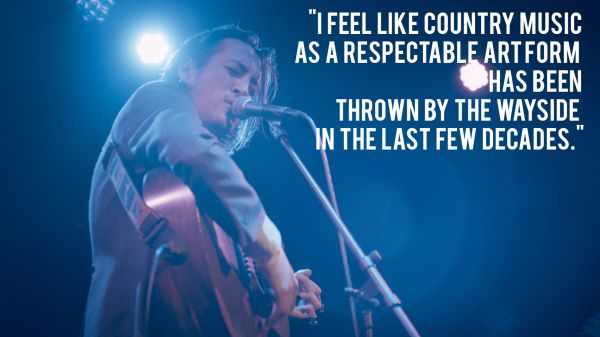Welcome back to Uncharted, an Uproxx original series highlighting the best artists you haven’t heard of, yet. With the support of our friends at Honda, we are following some of the best emerging talent as they follow their dreams and make great music.
The best country music is all about push-pull.
It’s the push toward progress versus the pull of family traditions. It’s the push to innovate versus the pull to preserve. At its heart, country music is a wail from the holler attempting to drown out the siren song of modernity.
That conflict between the rural and the urban plays out well in a country as massive and disparate as the United States. And country music has followed suit by being music made by and for Americans. But we don’t hold the patent on that struggle.
In fact, one of the greatest upcoming country musicians comes from about as far from Appalachia as you can get. New Zealand’s Marlon Williams is putting an antipodal spin on the country music tradition.
Though the Deep South is as foreign to him as the New Zealand bush is to us, Williams comes by his country music honestly. Williams is half-Kiwi, half-Maori — the native people of New Zealand — so he feels the struggle between assimilating to the modern world and holding on to the past innately.
“I think keeping tradition alive is important,” he said. “As a New Zealand Maori I certainly was an outsider. Maoridom is a culture that’s been marginalized and dismissed.”
What makes Williams truly odd is his desire to preserve a culture that is not his own. He recently embarked on his first tour of the United States, reflecting a part of our own history back to us. Williams needs to do this, as he feels a subtle disconnect has formed between Americans and our country music tradition.

Chris Douridas, a DJ for the mega-influential Los Angeles radio staton KCRW and one of Williams’ biggest boosters stateside, agrees with Marlon’s assessment.
“I’m probably not the best person to talk about what happened with American country music,” Douridas said. “But I can tell you that rock n’ roll producers brought it more toward the mainstream and toward pop.”
This leaves Williams with a complicated sell to make. He’s simultaneously trying to unearth the traditions of New Zealand and America and pitch that sound to New Zealanders who are unfamiliar with it and Americans who have moved past it.
“I feel like playing country music, there’s that…country music has had a bad rap, and for New Zealanders, there’s a certain association, definitely, with America for a lot of people when they go, ‘Oh, that’s American music. That’s not our music,’” he said. “I find it really interesting that you’re trying to break down those walls, those perceptions that people have about the music and about the culture. It’s an interesting standpoint to start from.”
Of course, even with all this confusing and meta-textual straddling of cultures going on, what’s most important to Marlon is simple. The man wants to make good music.
“If someone’s driving home and they can hear my song and derive any sort of pleasure from it whatsoever, then that’s a good thing.”






